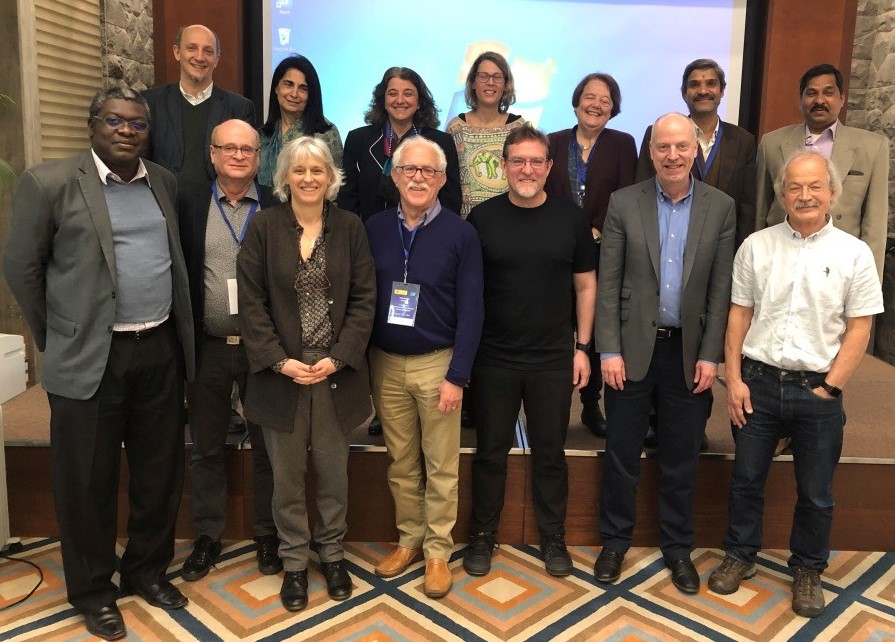IUSSP meetings in India: preparations for the Hyderabad Conference and other prioritiesNew Delhi, India, 29 January-1 February 2019
Preparations for the 2021 International Population Conference (IPC 2021) in Hyderabad are in full swing. The IUSSP Council as well as the International and National Organizing Committees for the conference had a series of productive meetings in New Delhi, India, early February. Setting the stage for IPC 2021 included getting to know our Indian colleagues and electing the Steering Committee for the conference.
At the core of our work was the preparation of the scientific programme for IPC 2021, where it was decided to structure this programme in 25 broad substantive themes covering the entire field of interdisciplinary population studies. Participants will have the possibility to select the theme of their choice for their submission (only one theme can be selected). Two submissions as presenting author will be allowed at IPC 2021 to ensure the widest possible participation. To ensure that the best work in the field is presented at the conference, all submissions will be peer reviewed by two reviewers. Keywords will be used to match submissions to reviewers, making sure that submission are reviewed by experts in that particular field. In a bottom-up approach, and working with the graded submissions, Theme Conveners with expertise in each substantive field will then build coherent sessions which are scientifically and/or policy relevant and attractive. Sessions will also reflect the geographical and other diversities of our membership. Conveners will cooperate in cases where good submissions may have relevance to various themes. The simultaneous sessions will be the core of the scientific program, which will further consist of several plenary sessions, whose topics and formats will be decided in a later stage.
Actively involving as many members as possible in the building of IPC 2021 as conveners, reviewers, chairs of session and, last but definitely not least, as presenters of papers and posters, is key to the Council. Together with our Indian colleagues in the International and National Organizing Committees, the Council looks forward to an exciting conference. The meetings in Delhi were a great start.
While the preparations for IPC 2021 were our core business in Delhi, the Council also worked on other priorities. One of these priorities was to ensure the involvement of younger members in the work of the new set of IUSSP panels created last year, and for this, we decided that each Panel should include one junior, early career member as a first step. Having more training sessions and workshops at our conferences is another. Further options to attract and involve younger members will be explored, including a survey to gauge their interests. Yet another priority on the Council’s list is how to promote a greener Union: options like the streaming of scientific events to reach more members in an environmentally friendly way will be experimented with. Increasingly video conferencing for Council and Panel business meetings is being used; we also propose to explore options for greener panel meetings and conferences, such as our flagship IPC.
In an effort to strengthen our international networks and engage relevant institutions in our work, the Council also decided to invite institutions in the population field to become affiliated with the IUSSP. The IUSSP Constitution (Article 16) sets out the rules for such affiliations. Becoming affiliated to the IUSSP will facilitate communication and dissemination of information and engagement in IUSSP activities; hopefully it will also stimulate institutions to host and /or organize joint events (workshops, seminars). It would also facilitate administrative procedures (such as collective payment of fees). The Council envisages that building stronger networks with institutions will increase the visibility of the Union at the grass roots level. It may also help to attract new members associated with these affiliated institutions, and/or retain current members in those institutions.
The IUSSP Newsletter will keep you up to date on the progress of our work.
|

